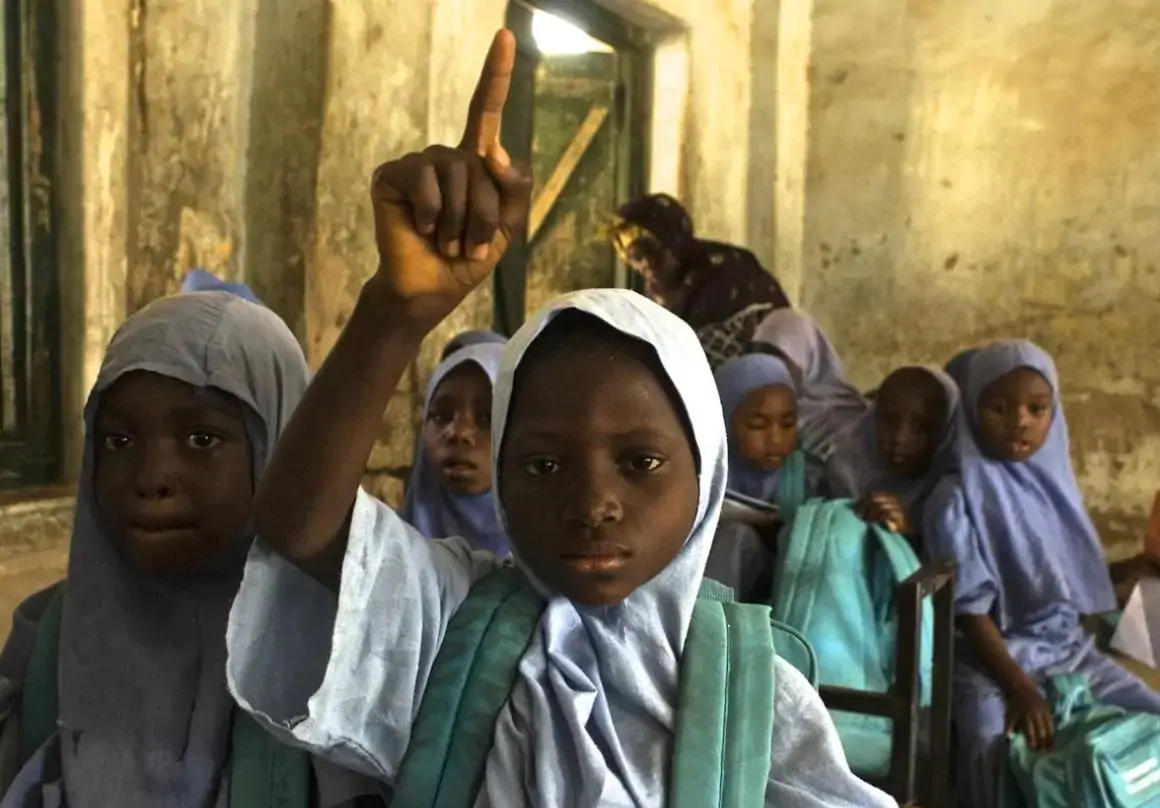1.5m girls enrolled in 6 Northern states schools in 10 years – Report
No fewer than 1.5 million girls enrolled in schools in six Northern states in the last 10 years under the Girls Education Project Phase III (GEP3). This is contained in the report of an evaluation of the project presented on Thursday in Kaduna State. The GEP3 which began in 2012 and ended in 2022 targeted […]

File Photo: girl-child education
No fewer than 1.5 million girls enrolled in schools in six Northern states in the last 10 years under the Girls Education Project Phase III (GEP3).
This is contained in the report of an evaluation of the project presented on Thursday in Kaduna State.
The GEP3 which began in 2012 and ended in 2022 targeted one million girls and surpassed it with over 500,000 girls by household.
It is funded by Foreign Commonwealth and Development Office (FCDO), UK, through UNICEF and implemented by the Federal and State Governments of Nigeria.
- Pregnant woman dies as doctors down tools in Nasarawa
- Reps urge FG to end banditry in Katsina, Gombe, Ondo
It is aimed at improving access, enrolment, retention, and learning outcomes for girls in basic education in the Northern Nigeria states of Bauchi, Katsina, Niger, Sokoto, Zamfara, and Kano states.
The findings revealed that 23, 655 girls benefited from the cash transfer program and more than 67, 000 teachers and Integrated Qur’anic Schools (IQS) facilitators were trained, which improved teaching competency from 12 per cent to 52 per cent.
The report also showed that 2.6 million children continued education through alternate learning during the COVID-19 where back-to-school campaigns conducted in 18, 567 schools resulted in 94 per cent of children returning to school.
The report further showed that more than 3, 800 schools and IQS implemented the Reading and Numeracy Activity (RANA) with improvement in foundational literacy.
Also, the functionality of Schools Based Management Committees (SBMC) and Community Based Management Committees (CBMCs) increased from 30 per cent to 80 per cent with whole school development plans.
The plans included activities on girls’ enrolment and retention which increased from 45 per cent to 67 per cent.
Speaking during the dissemination meeting of the findings, the Officer in Charge (OiC), UNICEF Kaduna Field Office, Dr Idris Baba, noted that the success of the project could be attributed to adopting a comprehensive societal approach.
Baba said it could be considered as a wide range of social, psychosocial, cultural, and economic factors that affect girls’ education.
“The combination of multiple intervention types, targeting various stakeholders and utilising different change-inducing modalities, was instrumental in inducing the desired shifts in perceptions and behaviours.
“The Girls’ Education Programme 2012 to 2022 in Northern Nigeria has made remarkable progress in reducing inequalities and improving girls’ access, enrolment, retention, and learning outcomes in basic education.
“The achievements, lessons learned and recommendations presented in this brief, demonstrate the programme’s effectiveness and provide valuable insights for future interventions,” he said.
In her remark, the Director of the Senior Secondary Education Department, Federal Ministry of Education, Hajiya Binta Abdulkadir, noted that the GEP3 was a success in so many ways.
Abdulkadir said that it had changed the narrative in school enrolment and completion at the Basic Education level.
Represented by Mrs Monica Ogah, Director, Unity Schools Division, she added that GEP3 was conceived as a result of the success achieved through the implementation of GEP1 and GEP2. (NAN)
